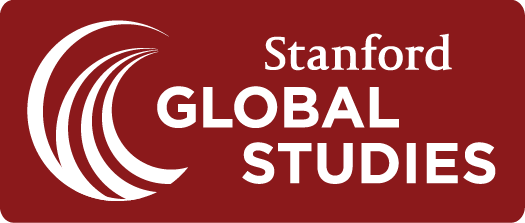
The sixth annual Summer Film Festival “Imagining Empire: A Global Retrospective,” will run from June 17th to August 26th and features eight films from around the world.
"Empire," the focus of this year's film festival, offers a flexible lens with which to look at both historical and contemporary geopolitical and socioeconomic contexts. The films chosen truly represent the variety of ways in which empire has been cinematically interpreted and reimagined.
“Our title ‘Imagining Empire: A Global Retrospective’ captures the historical and geographical sweep of the festival with films set in contexts as varied as colonial Asia and the contemporary racial formations of the Americas,” says Kate Kuhns, SGS Executive Director. “The theme also dovetails with several other upcoming projects at Stanford Global Studies, including a week-long summer teaching institute for high school teachers co-sponsored by our three National Resource Centers (Center for East Asian Studies, Center for Latin American Studies, and Center for Russian, East European, and Eurasian Studies) in partnership with the Center for the Support of Excellence in Teaching at the Graduate School of Education.”
All films start at 7pm in the Geology Corner, Bldg. 320, Room 105, 450 Serra Mall, Stanford and feature a post-screening discussion. Admission is free and open to the community.
Wednesday, June 17, 2015
“Harvest of Empire” (2012) by Peter Getzels, Eduardo Lopez (English)
Moderator: Jorge Ramón González
Sponsored by the Center for Latin American Studies
Based on the groundbreaking book by award-winning journalist and Democracy Now! Co-host Juan González, Harvest of Empire takes an unflinching look at the role that U.S. economic and military interests played in triggering an unprecedented wave of migration that is transforming our nation’s cultural and economic landscape.
Wednesday, June 24, 2015
“Kurmanjan Datka” (Queen of the Mountains) (2014) by Sadyk Sher-Niyaz (English/Kirghiz/Russian)
Moderator: Kara Downey
Sponsored by the Sohaib & Sara Abbasi Program in Islamic Studies
During the early 19th century it is predicted that Kurmanjan, a young girl from Central Asia, will have a great destiny and that she will become the ruler of her country and save the nation from total destruction. This prediction was mocked, as women at that time had no rights.
Wednesday, July 8, 2015
“The Battle of Algiers” (1966) by Gillo Pontecorvo (French, Arabic, English)
Moderator: Dan Edelstein
Sponsored by the France-Stanford Center/Mediterranean Studies Forum
In the 1950s, fear and violence escalate as the people of Algiers fight for independence from the French government.
Wednesday, July 15, 2015
“The Chess Players (Shatranj Ke Khiladi)” (1977) by Satyajit Ray (Urdu/English/Hindi)
Moderator: Sangeeta Mediratta
Sponsored by the Center for South Asia
In 1856, two obsessive chess players fail to notice British rule extending into their Indian province.
Wednesday, July 22, 2015
“Timbuktu” (2014) by Abderrahmane Sissako (French/Arabic/Bambara/English/Songhay)
Moderator: Laura Hubbard
Sponsored by the Center for African Studies
A cattle herder and his family who reside in the dunes of Timbuktu find their quiet lives -- which are typically free of the Jihadists determined to control their faith -- abruptly disturbed.
Wednesday, August 12, 2015
“The Ghost Valley's Treasure Mysteries” (1974) by Ebrahim Golestan (English/Persian)
Moderator: Bahram Beyzaie and Abbas Milani
Sponsored by the Hamid and Christina Moghadam Program in Iranian Studies
A satirical comedy about a poor farmer who, while plowing his field, accidentally uncovers an ancient burial chamber loaded with gold artifacts. Realizing that the trove would somehow liberate him from his bumpkin existence, he brings pieces of it to a jeweler in the city.
Wednesday, August 19, 2015
“Leviathan” (2014) by Andrey Zvyagintsev (Russian)
Moderator: Kiersten Jakobsen
Sponsored by the Center for Russian, East European and Eurasian Studies
In a Russian coastal town, Kolya is forced to fight the corrupt mayor when he is told that his house will be demolished. He recruits a lawyer friend to help, but the man's arrival brings further misfortune for Kolya and his family.
Wednesday, August 26, 2015
“Rabbit Proof Fence” (2002) by Phillip Noyce (English/Aboriginal)
Moderator: Krish Seetah
Sponsored by The Europe Center
In "Rabbit-Proof Fence" is a 2002 film based on the book Follow the Rabbit-Proof Fence by Doris Pilkington Garimara. It concerns the author's mother, and two other young mixed-race Aboriginal girls, who ran away from the Moore River Native Settlement, north of Perth, in order to return to their Aboriginal families, after being placed there in 1931. The film follows the girls as they trek/walk for nine weeks along 1,500 miles of the Australian rabbit-proof fence to return to their community at Jigalong while being tracked by a white authority figure and a black tracker.



